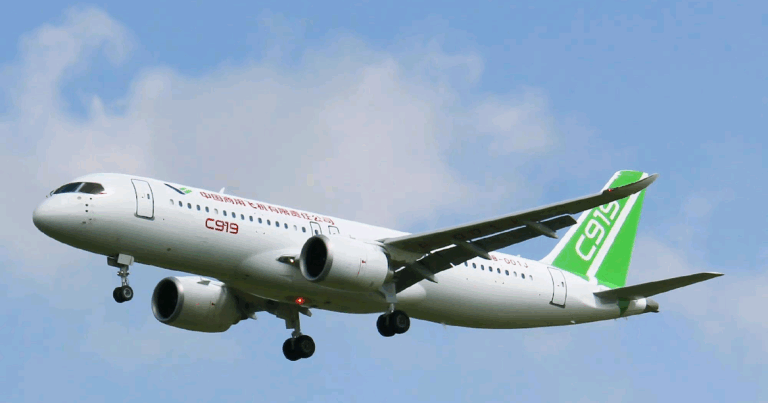As competition intensifies in Nigeria’s aviation sector, local carriers are evaluating new options for expanding their fleets. A potential game-changer under consideration is China’s C919 jet, currently being reviewed for certification by Nigeria’s Civil Aviation Authority.
For Nigerian operators, the appeal of COMAC’s narrow-body aircraft lies not only in its competitive positioning against Airbus and Boeing but also in the support packages being discussed. COMAC has proposed maintenance and training programs, along with flexible leasing arrangements, to lower barriers for carriers seeking fleet growth.
Abdullahi Ahmed, CEO of NG Eagle, expressed interest in exploring the Chinese aircraft. With his airline currently operating three jets, he noted that COMAC planes could become part of the fleet strategy provided certification and after-sales support are secured.
Market Expansion Opportunities
Nigeria’s 230 million-strong population makes it one of Africa’s most promising aviation markets. With the government strengthening compliance with global leasing standards under the Cape Town Convention, more airlines are gaining access to modern aircraft through leasing, a development that could make COMAC’s offerings attractive if they prove reliable and cost-efficient.
Industry data supports the growth potential: despite persistent cost pressures, average real airfares in Nigeria declined by 43.6% between 2011 and 2023, pointing to a slow but steady broadening of air travel demand.
Balancing Risks and Benefits
While opportunities exist, Nigerian carriers must weigh the risks. COMAC’s C919 has yet to secure certification from Western regulators, and recent U.S. export restrictions briefly disrupted the supply of CFM engines used in the jet. At present, the aircraft is operated only by Chinese airlines, with limited deployment of COMAC’s smaller C909 in Southeast Asia.
Nonetheless, the Chinese manufacturer is preparing to display one of its models at Nigeria’s first international air show in December, signaling its intent to capture a share of Africa’s growing market.
For Nigerian airlines, the decision to adopt COMAC aircraft will hinge on two factors: the success of the certification process and the strength of the long-term support ecosystem. If both align, the C919 could provide a cost-effective alternative to traditional fleet expansion options.

